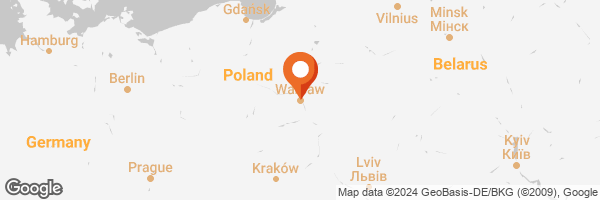this post is a continuation from yesterday's post
https://ecency.com/hive-163772/@eolianpariah2/impressions-of-warsaw
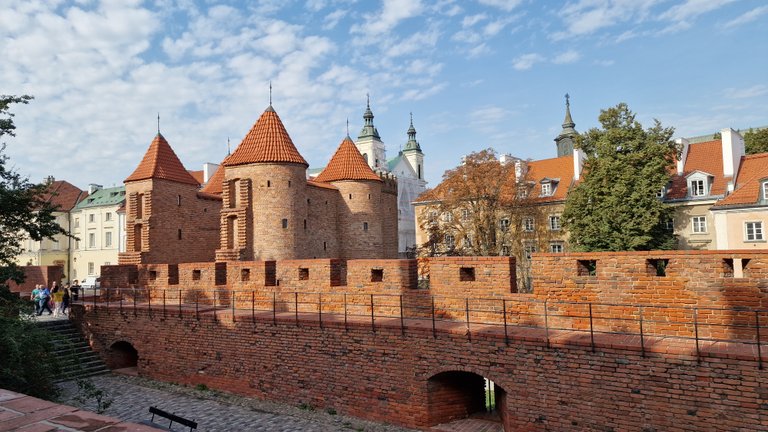 Passing through the iconic Barbican brings us from Old Town to New Town. now Old Town dates from the 1300s or so back in the 1400s when New Town was established it was in fact new. nowadays we can safely say they are both quite old. most of New Town was also demolished by the Germnas during world war 2 but like Old Town has been reconstructed
Passing through the iconic Barbican brings us from Old Town to New Town. now Old Town dates from the 1300s or so back in the 1400s when New Town was established it was in fact new. nowadays we can safely say they are both quite old. most of New Town was also demolished by the Germnas during world war 2 but like Old Town has been reconstructed
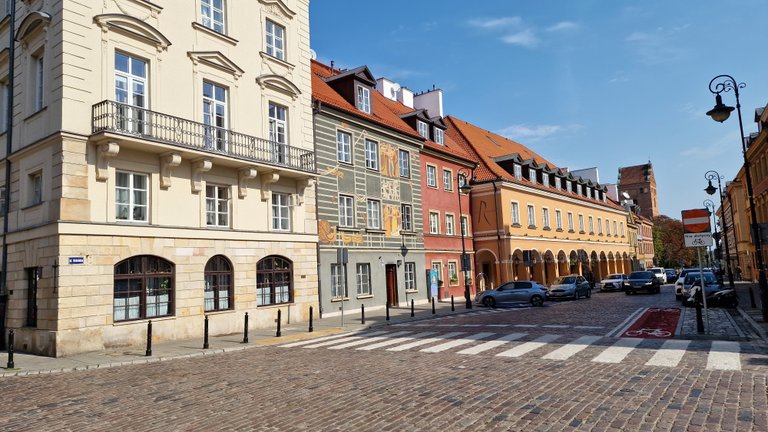 the general feel of the place has much of the charm of Old Town but there is slightly more traffic and the commerce seems more geared to residents rather than tourists. it is unquestionably a historical and cultural center
the general feel of the place has much of the charm of Old Town but there is slightly more traffic and the commerce seems more geared to residents rather than tourists. it is unquestionably a historical and cultural center
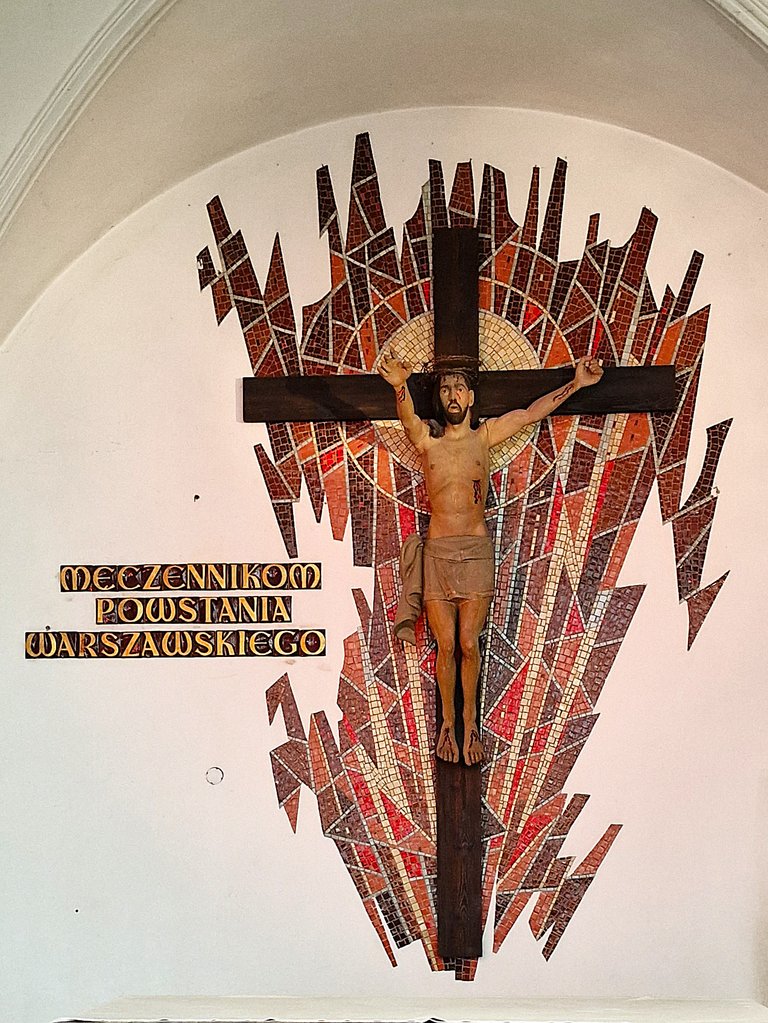 during the Warsaw Uprising in 1944 St Hyacinth's church and monastery served as a hospital for the underground Polish forces attempting to liberate Warsaw from German control. it was totally demolished, killing the over 1000 Poles inside. the church and monastery was rebuilt and this politicized 'crucifixion' with a Nazi salute and the mosaic background is accompanied by the text which translates as Martyrs of the Warsaw Uprising
during the Warsaw Uprising in 1944 St Hyacinth's church and monastery served as a hospital for the underground Polish forces attempting to liberate Warsaw from German control. it was totally demolished, killing the over 1000 Poles inside. the church and monastery was rebuilt and this politicized 'crucifixion' with a Nazi salute and the mosaic background is accompanied by the text which translates as Martyrs of the Warsaw Uprising
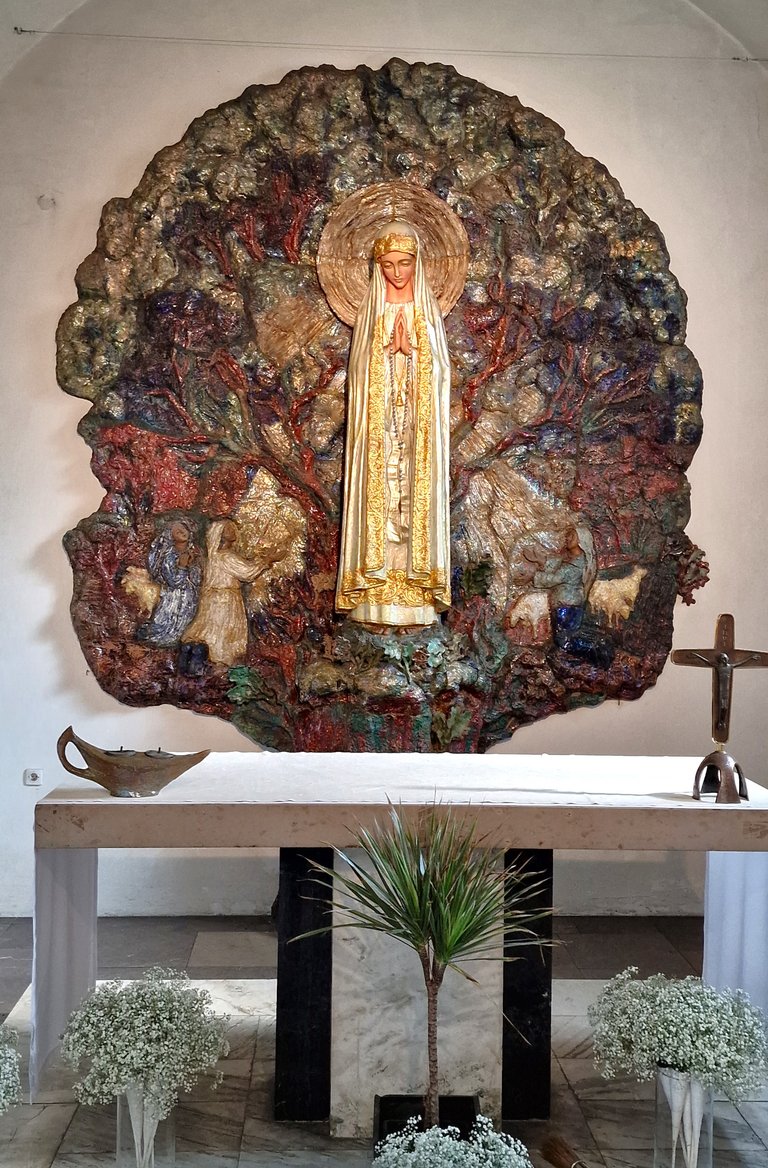 a striking work of modern Christian art well worth taking a closer look at
a striking work of modern Christian art well worth taking a closer look at
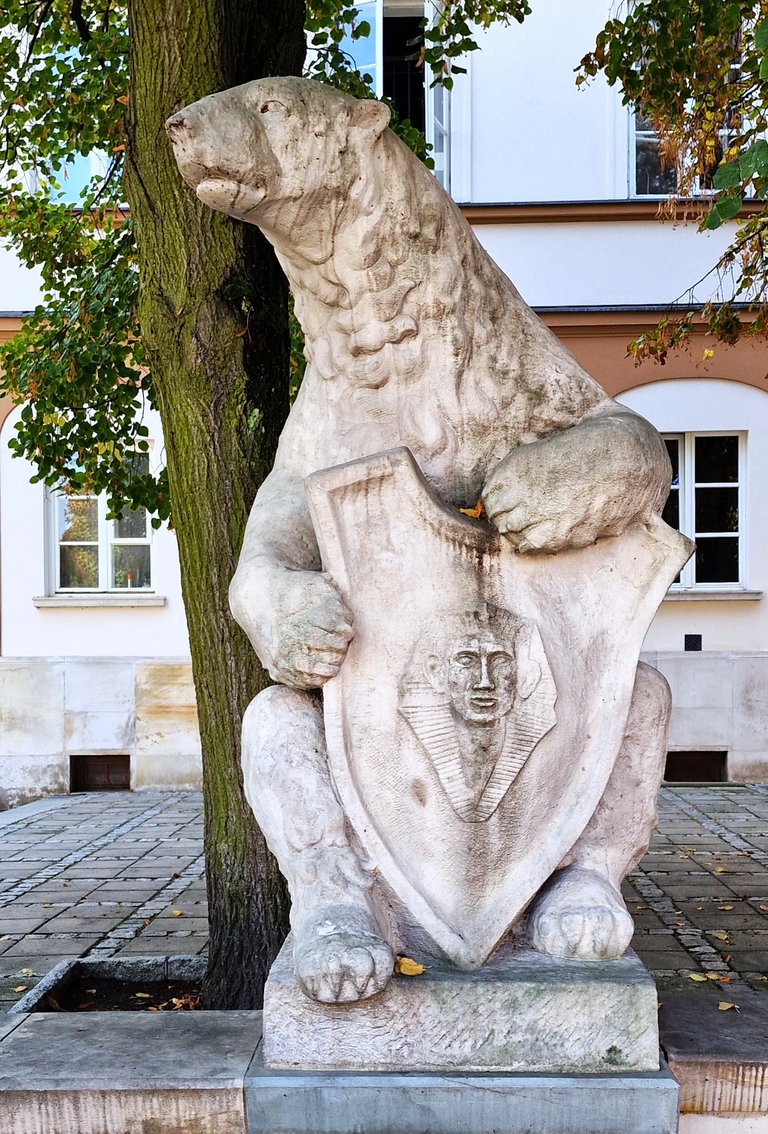 a pair of bears bearing shields keep a watch on New Town Market Place
a pair of bears bearing shields keep a watch on New Town Market Place
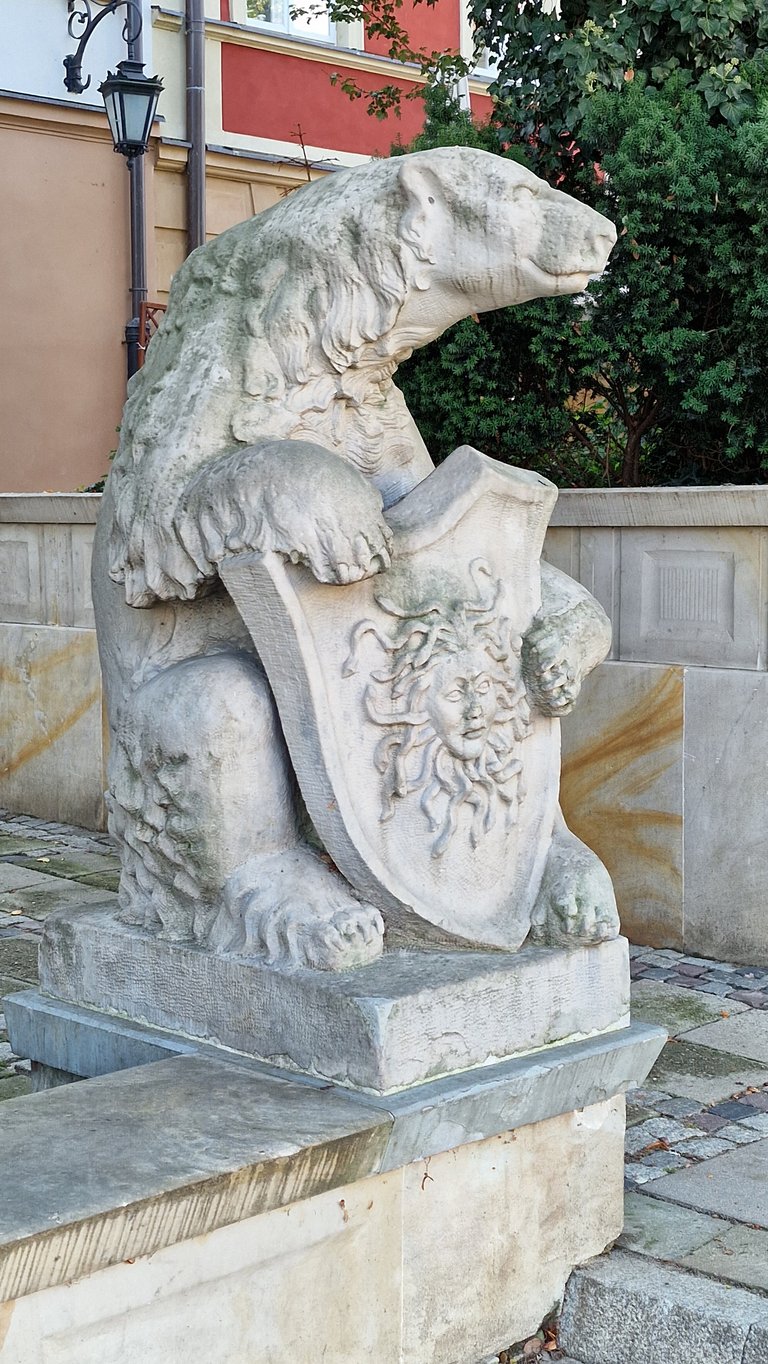
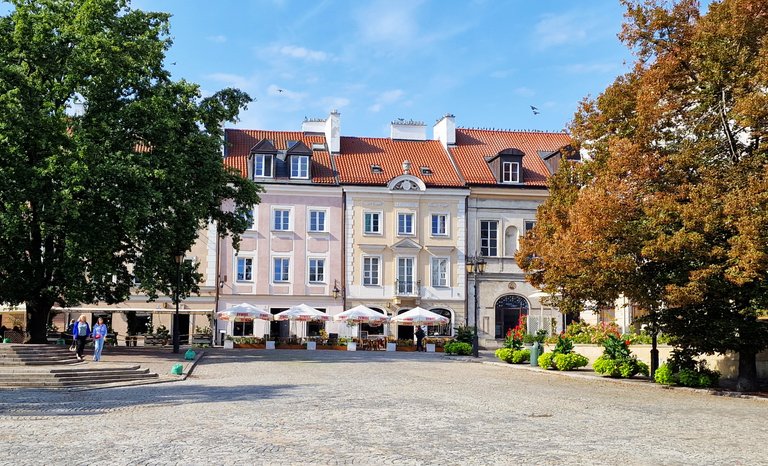 the once thriving market place was also completely demolished in the war and only parts of it have been rebuilt
the once thriving market place was also completely demolished in the war and only parts of it have been rebuilt
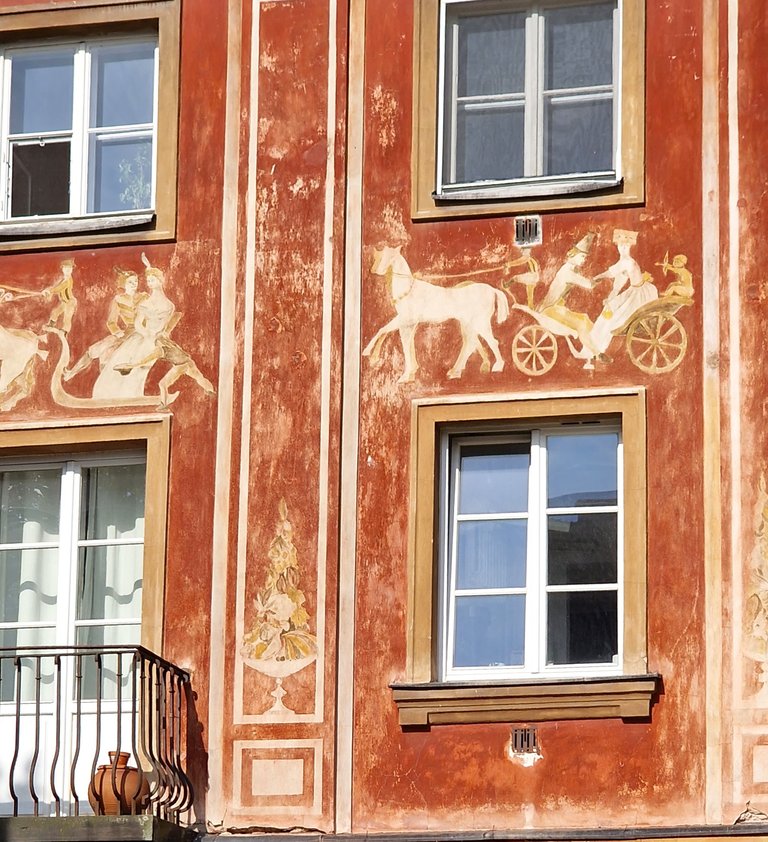 but the reconstruction is nonetheless impressive
but the reconstruction is nonetheless impressive
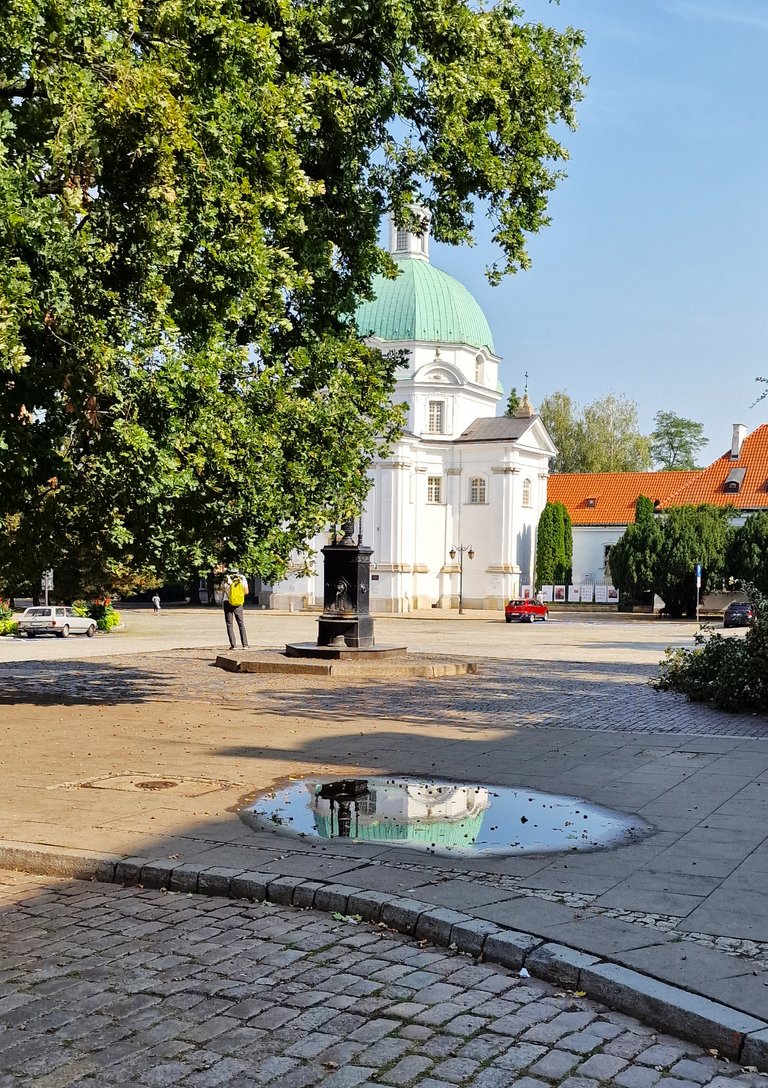 there's a working water pump in the middle of the old market place. at the far end overlooking the Wistula River stands the St. Kazimierz or St. Casimir's church.
there's a working water pump in the middle of the old market place. at the far end overlooking the Wistula River stands the St. Kazimierz or St. Casimir's church.
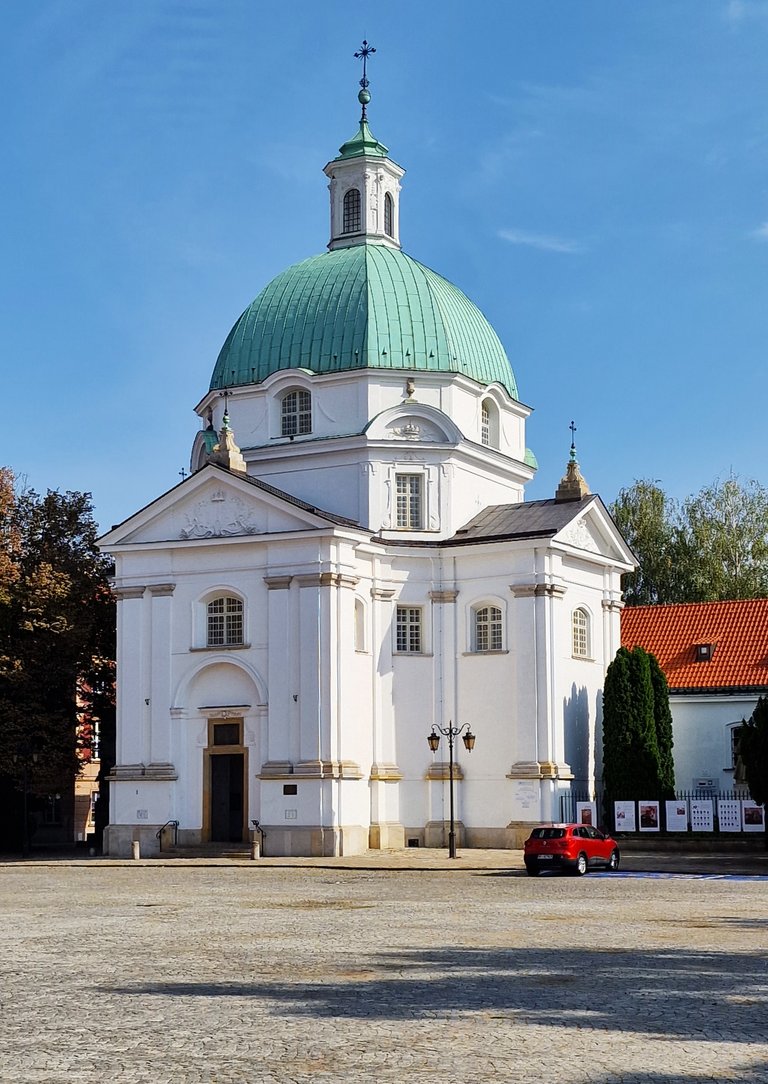 the church and the connected Benedictine Sisters monastery also functioned as a hospital during the Warsaw Uprising and was destroyed much like the nearby St. Hyacinth.
the church and the connected Benedictine Sisters monastery also functioned as a hospital during the Warsaw Uprising and was destroyed much like the nearby St. Hyacinth.
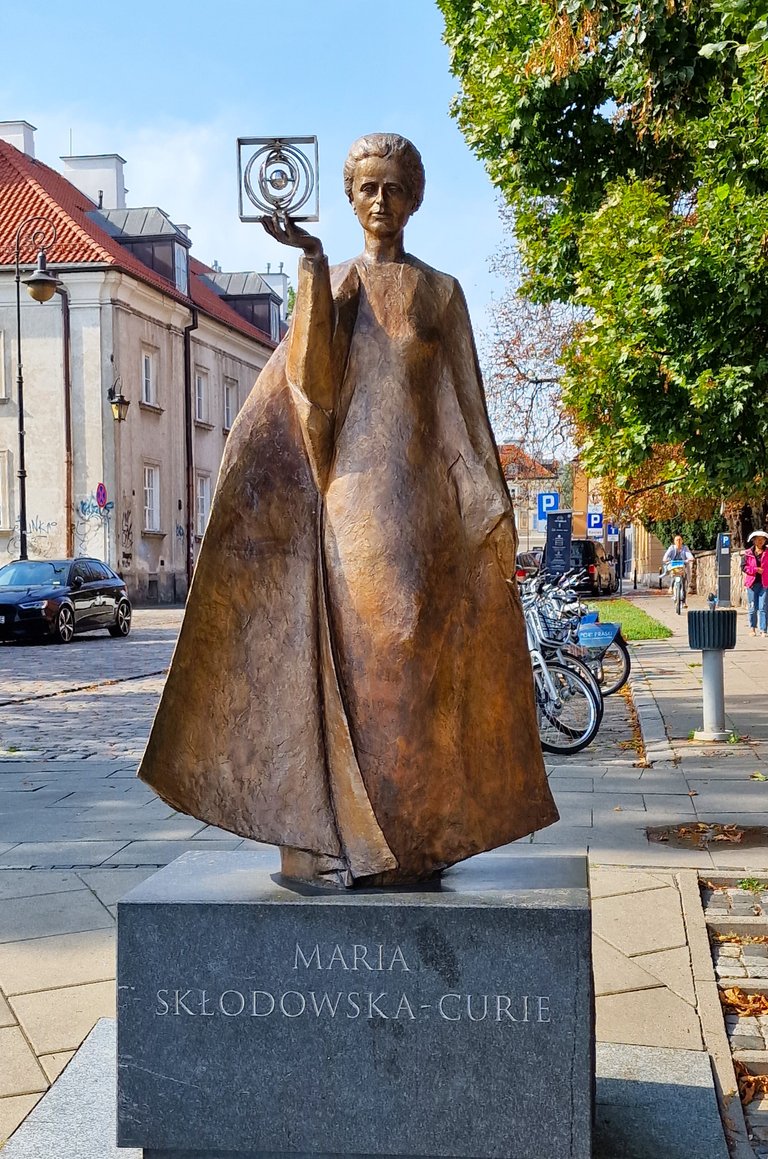 a distinctive bronze statue of Maria Curie also overlooks the river.
a distinctive bronze statue of Maria Curie also overlooks the river.
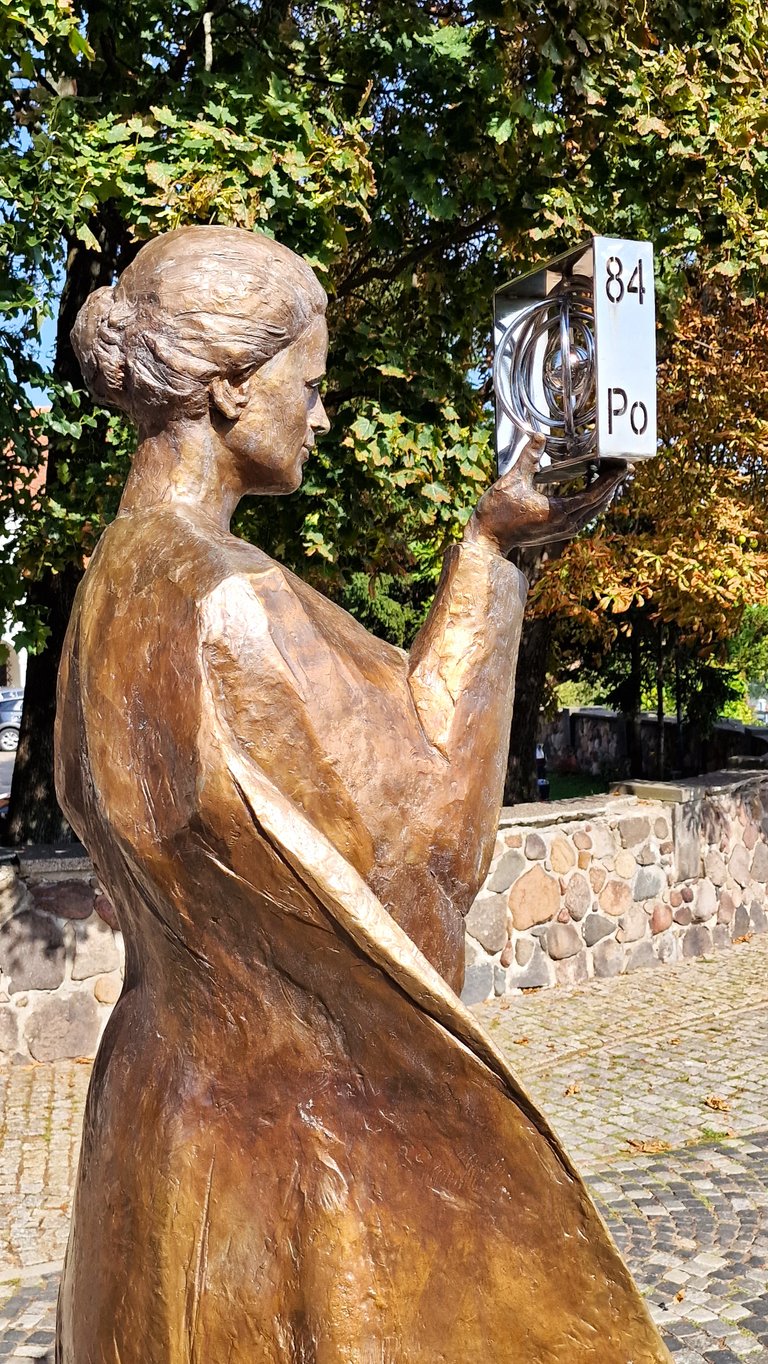 a native of Warsaw, she is holding a model of a Polonium atom Po with the atomic number 84. she was awarded two nobel prizes for her outstanding contributions to science. one together with her husband in physics for their pioneering in the field of radioactivity and a few years late another one in chemistry for her discovery of Polonium and Radium
a native of Warsaw, she is holding a model of a Polonium atom Po with the atomic number 84. she was awarded two nobel prizes for her outstanding contributions to science. one together with her husband in physics for their pioneering in the field of radioactivity and a few years late another one in chemistry for her discovery of Polonium and Radium
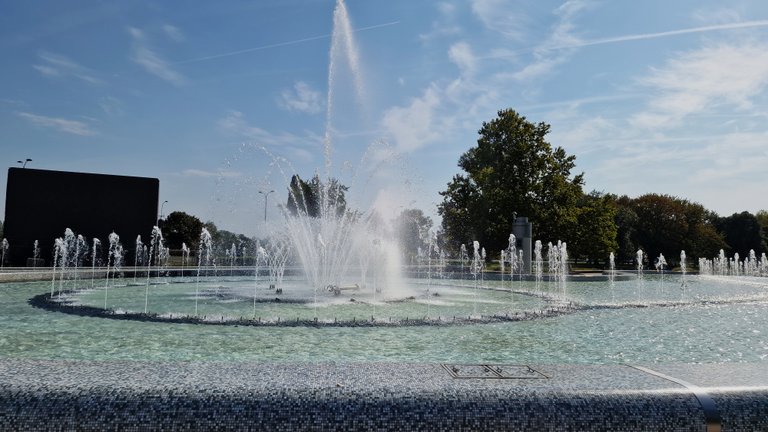 down the hill by the riverside there's a large park with a wonderful huge fountain.
down the hill by the riverside there's a large park with a wonderful huge fountain.
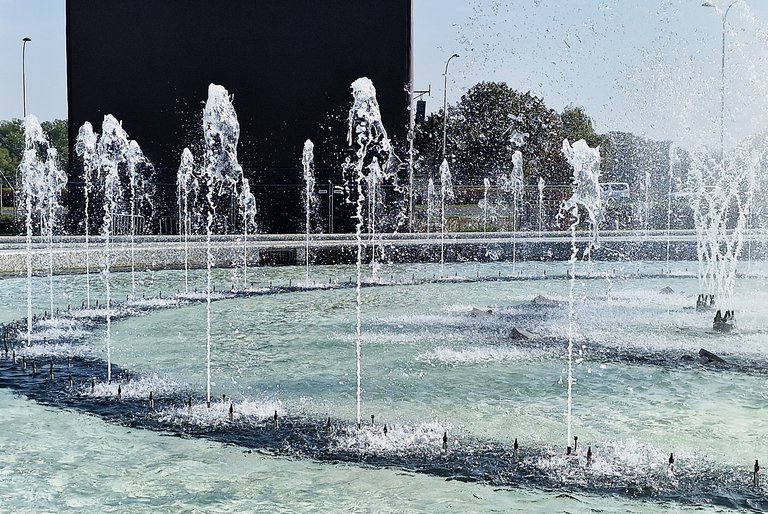 after dark there's a light show performance at the fountain. we were tempted to go see it but we had an excruciatingly early flight to catch so we opted to sleep early instead
after dark there's a light show performance at the fountain. we were tempted to go see it but we had an excruciatingly early flight to catch so we opted to sleep early instead
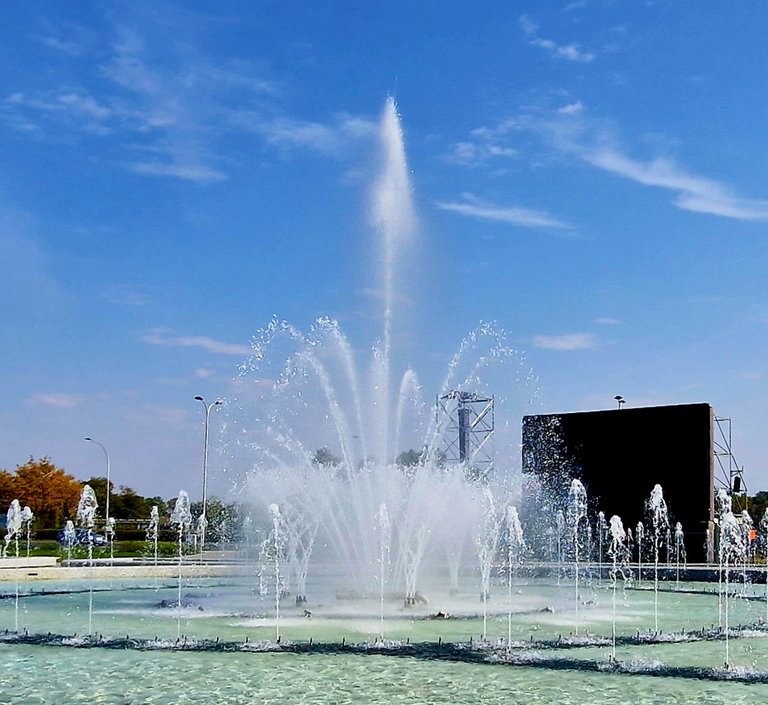 so we enjoyed a nice break in the park
so we enjoyed a nice break in the park
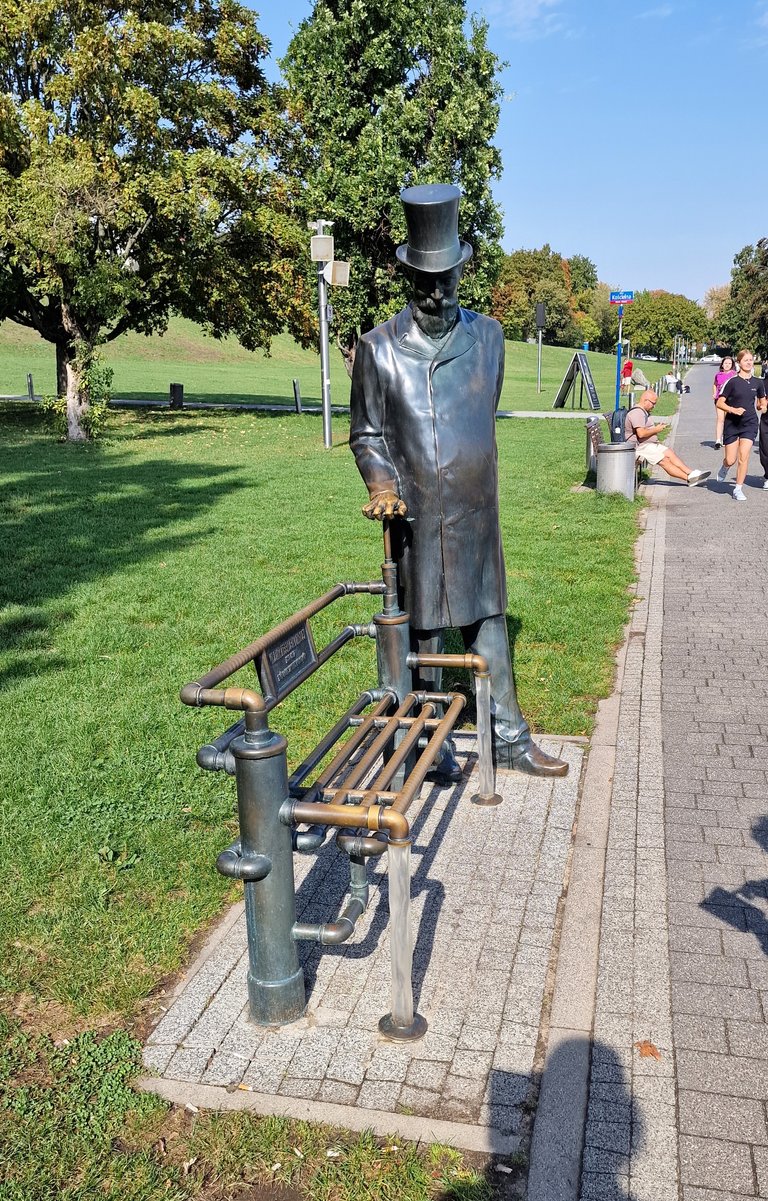 where we found a curious bench/statue with a plaque with the name William Heerlein Lindley.
where we found a curious bench/statue with a plaque with the name William Heerlein Lindley.
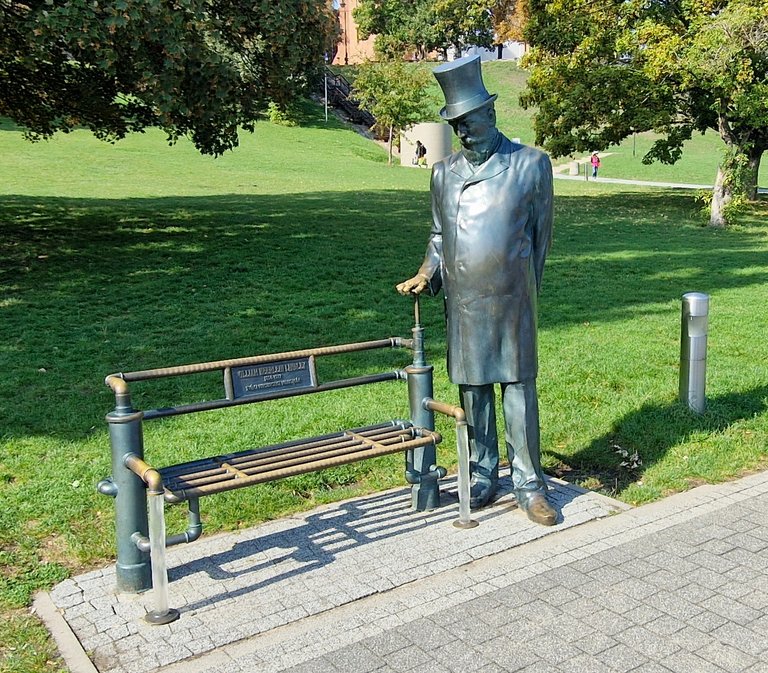 i knew nothing about this man but he must have had a big stomach and something to do with water pipes. so i referenced Wikipedia and learned he was the engineer who designed the water supply and filtering system providing the city with running water. the city was most grateful for his efforts and he became a kind of hero
i knew nothing about this man but he must have had a big stomach and something to do with water pipes. so i referenced Wikipedia and learned he was the engineer who designed the water supply and filtering system providing the city with running water. the city was most grateful for his efforts and he became a kind of hero
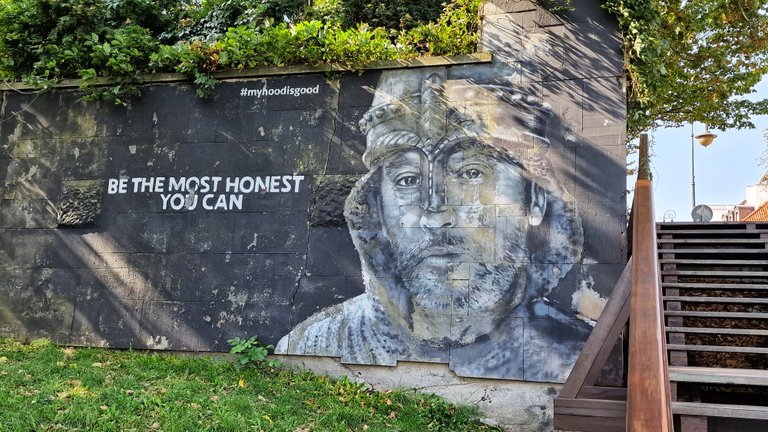 to get back in New Town we had to climb a very long stairway. at the top of the stairs was this prominent billboard with a well phrased message.
to get back in New Town we had to climb a very long stairway. at the top of the stairs was this prominent billboard with a well phrased message.
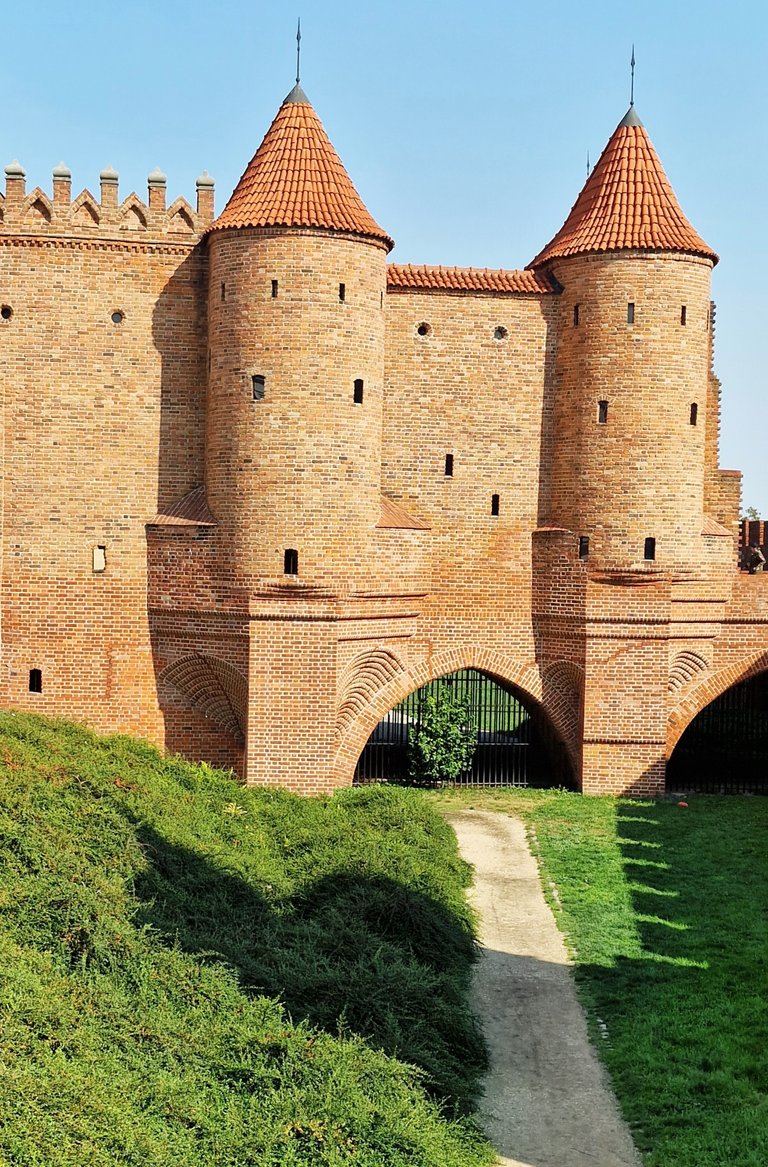 with those wise words in mind we headed back toward the peculiar Barbican with the entrance to Old Town
with those wise words in mind we headed back toward the peculiar Barbican with the entrance to Old Town
